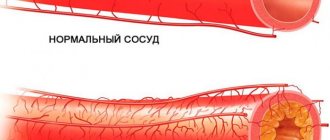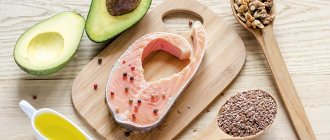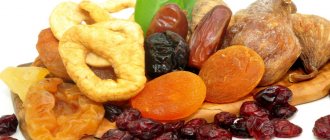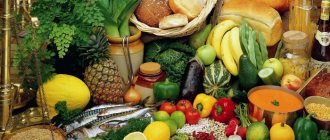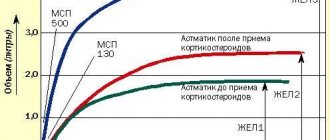Violation of the full functioning of the thyroid gland is usually associated with a deficiency in the body of useful substances: vitamins and microelements. With minor disruptions in the endocrine system, a person feels constant lethargy, decreased performance, and memory impairment.
Further weakening leads to serious pathologies. For example, the formation of goiter, swelling, weight gain or sudden loss of body weight with increased appetite, sleep disturbances, short temper and irritability, high temperature.
Endocrinologists identify several causes of thyroid diseases. Among them, a special place is given to unbalanced nutrition, which leads to a lack of important microelements in the body. In fact, without receiving full “recharge” from the outside, this organ of the endocrine system “fades away.” The synthesis of hormones T3 and T4 sharply decreases, which leads to the development of a whole bunch of chronic pathologies. Various medications are used to treat thyroid diseases.
However, to prevent diseases, endocrinologists advise periodically taking multivitamin complexes with microelements in the form of food additives.
Oysters
When determining the ranking of which foods contain zinc, scientists put oysters in first place.
This bivalve mollusk is the leader in microelement content - up to 5.5 mg per oyster. This means that 1 oyster provides 50% of the recommended amount of the mineral. These shellfish contain 7 calories per piece and contain vitamin B12 and selenium, which are necessary to stimulate the immune system. The amount of zinc in a product does not change depending on the method of preparation: you can eat fresh, cooked, or canned.
Foods High in Zinc
It has long been known that zinc is essential for many processes occurring in the body. In addition, many people are chronically deficient in this mineral. Zinc is an active component that helps the body absorb food and nutrients. Zinc actively interacts with more than 100 internal enzymes necessary for many metabolic processes. Zinc is also extremely important for the health of the human immune system. It promotes growth in protein construction and synthesis, and is therefore especially necessary for pregnant and lactating women. Surprisingly, zinc affects the body's ability to heal wounds. It supports the sense of smell and is associated with healthy eyes, skin and hair. A person must ensure that he or she is getting enough zinc through food, since the body does not have the ability to store zinc. There are plenty of foods that contain zinc, but the list of foods below contains the highest amounts of natural zinc. These foods can be a healthy addition to any diet. These products are very useful for alcoholism, since alcohol removes large amounts of zinc from the body, which contributes to poor health . After a long binge, you should definitely include the following foods in your diet.
Pumpkin seeds
In addition to being high in zinc, pumpkin seeds also play a role in preventing prostate cancer. In addition, they support the health of the immune system. In order to get the maximum amount of zinc in its pure form, the seeds should be eaten raw, since roasted seeds lose some of the beneficial properties of zinc.
Dark chocolate
A small bar of chocolate can provide an irreplaceable service to the person who eats it. Indeed, one hundred grams of bitter dark chocolate contains up to 9.5 mg of zinc. Cocoa powder contains 6.8 mg.
Garlic
This tangy little clove of garlic has a pretty good level of natural zinc and goes easily with any dish. Garlic is also significantly useful in the treatment of alcoholism and drug addiction, as it contains manganese, vitamin B6, vitamin C and selenium.
Sesame
Roasted sesame seed oil or tahini paste is very healthy, and sesame seeds themselves contain approximately 9 mg of zinc per 100 grams. It is recommended to include more sesame in your diet, or even use sesame flour instead of wheat flour for baking bread and other products
Watermelon seeds
This may seem strange, but 100 grams of dried watermelon seeds contain 11 mg of zinc.
wheat sprouts
An excellent addition to any salad. 100 grams of roasted wheat germ contains 17 mg of zinc. And this is more than 100% of the required daily consumption.
Squash seeds (between squash and pumpkin)
Other well-known seeds are squash seeds, which contain approximately 10 mg per 100 grams. You can remove the seeds from the squash and eat them raw, or dry them or roast them in the oven. Many people prefer to consume them raw.
Chickpeas (chickpeas)
Approximately 200 grams of peas contain 2.8 mg of zinc. It also contains folate and is high in protein and dietary fiber.
Other sources of zinc
Besides the foods mentioned above, there are many other ways to get zinc. If none of the above products are suitable for a person for some reason, then you can additionally consume zinc in medications. But before this, you should definitely consult with your doctor to decide which drug is most suitable. This is influenced by the individual capabilities of the body. Many people prefer zinc orotic acid (vitamin B13). This substance, isolated from cow's milk, can influence the growth of microorganisms.
Foods high in zinc, 5 / 5 (2 votes)
Crabs and lobsters
The second ones when compiling the list are which foods contain a lot of zinc, crustaceans, in particular lobsters and crabs. 100 g of Kamchatka crab contains 59% of the daily value of zinc or 6.5 mg. A small fried or boiled lobster provides 43% (4.7 mg) of the recommended daily value for the micronutrient. Seafood is an addition to any healthy diet that benefits cardiovascular health. But shellfish don't offer as many heart-healthy benefits as salmon and sardines.
Consequences of zinc deficiency in the body
With deficiencies of this microelement, the following ailments may occur.
Consequences of zinc deficiency in the body:
- Deterioration of vision
- Muscle weakness, cramps
- Decreased muscle mass
- Development of bulimia and anorexia
- Decreased libido
- Erectile dysfunction
- The appearance of peeling in the skin area
- Memory impairment
- Brain dysfunction
- Increased risk of developing atherosclerosis
- The number of depression and mental disorders is increasing
Healthy foods
Meat and poultry: the benefits of protein and zinc
What foods contain zinc: beef, pork and chicken (they are rich in more than just protein). For maximum health benefits, choose lean meats such as veal, pork tenderloin and boneless chicken breasts. 100g of sliced roasted skinless chicken breast provides 19% (2.13 mg) of the recommended daily value.
Chicken eggs also contain this substance - about 5% of the daily value (0.6 mg) per large egg.
Daily intake of zinc
The amount of zinc needed for a person in 24 hours depends on many circumstances:
- floor;
- number of years;
- some features for women (pregnancy and breastfeeding).
At different periods of life, a person should receive zinc in the amount necessary for him, namely:
- children;
- from birth to 3 years should consume 2-3 mg;
- from 3 to 8 years the norm is about 5 mg;
- at 8-13 years of age, the daily requirement for zinc increases to 8 mg.
- for teenage children;
- for young men the required dose is 10 mg;
- for girls 9 mg.
- woman;
- from 18 to 50 years old, the norm is considered to be zinc consumption per day from 9 to 12 mg;
- over 50 years - about 10 mg;
- during pregnancy, a girl should receive about 18 mg of the microelement;
- during breastfeeding - about 19 mg;
- men;
- from 19 to 49 years old should consume about 15 mg;
- over 50 years - the need for zinc is reduced to 13 mg.
- for an adult who is sick or engaged in physical activity, the daily norm increases to 25 mg.
Mushrooms and cabbage
If you are a vegetarian or vegan, there are many meat-free sources of zinc. Plant foods are healthy, they contain enough zinc, protein and other essential nutrients. Eating a healthy plant-based diet is associated with a lower risk of death among American adults, according to a study published in April 2021 in the Journal of Nutrition. Therefore, plant foods are no less important than animal foods.
One cup of chopped raw mushrooms contains about 3% (0.4 mg) of the daily value. Cabbage provides about the same amount (0.3 mg) per serving.
Adding these foods to your daily diet will provide an extra dose of zinc without consuming a lot of calories. 100 g of mushrooms contain only 20 calories, but a high amount of vitamin B riboflavin.
In addition to zinc, kale has vitamins A, K, B6 and C, plus calcium, potassium, copper and manganese, and only 33 calories per serving.
Products for thyroid disease
To reduce the risk of pathologies of the endocrine system, doctors recommend dietary nutrition with substances important for thyroid health. To prevent diseases and treat the organ, it is necessary to include in the diet the following foods:
- Feijoa and persimmon - these iodine-containing fruits can be eaten at any time of the year. Fruits are also rich in sodium, magnesium and iron. In addition, persimmon and feijoa are a storehouse of vitamin compounds A, C and P.
- Fresh seafood - mussels, crabs, fish, lobsters, shrimp, squid, etc. The same iodine-rich foods as persimmon and feijoa. Contains zinc, fatty acids, phosphorus, protein, B12. People who love seafood have strong immunity; their endocrine system is regularly fed with important hormones.
- Sea kale is the primary source of iodine compounds. What kind of prevention of endocrine diseases will be possible without this ingredient? It is enough to eat 70-100 grams of seaweed per day for the body to consistently produce thyroid hormones. Also contains phosphorus, magnesium, silicon and a number of other useful minerals.
- Red fish - salmon, trout, pink salmon, salmon and any red meat contain tyrosine. This substance helps synthesize necessary hormones. If there is enough red fish in the diet, then the body receives calcium, omega-3 fatty acids, vitamin D, and phosphorus. In addition, fish liver is a source of selenium.
- Spinach and onions strengthen the immune system and are also natural antioxidants. In addition, spinach contains a unique set of microelements important for the health of the endocrine system. These are phosphorus, zinc, iodine compounds, sodium, manganese and others.
It is also necessary to note the benefits of apples, berries and nuts for all body systems. Pine nuts and walnuts are rich in iodine compounds. Apples and blueberries contain antioxidant substances that protect cells from the harmful effects of free radicals.
Legumes
Chickpeas, lentils and beans are good sources of this substance. Add hummus, edamame, and black beans to your meals to get extra zinc and other beneficial nutrients.
100 g of hummus contains 8% (0.89 mg) of the recommended daily value. Canned chickpeas provide 19% (2.07 mg) and lentils provide 11% (2.27 mg) per serving. Shelled edamame contains 19% (2.12 mg) and black beans - 18% (1.93 mg) of the micronutrient.
Legumes are relatively low in calories. This is an excellent food with low fat, high protein, vitamins, minerals, and plenty of dietary fiber.
Vitamins for the thyroid gland
The following vitamin groups provide a stable supply of hormones to the endocrine system:
- Retinol (A) – is responsible for protein biosynthesis. Vitamin group “A” has a beneficial effect on the immune system, improves the condition of the mucous membranes, bones and teeth. Retinol strengthens nails and hair, relieves swelling and sagging skin, and has a good effect on vision. Usually, the “A” + “E” complex is prescribed for prevention in order to enhance the positive effect of exposure.
- Vitamins B6, B12 – pyridoxine and cobalamin. Vitamin group “B” accelerates metabolic processes. Increased metabolism prevents the appearance of goiter, obesity, diseases of the cardiovascular and endocrine systems.
- Cholecalciferol (D) - comes from food and is also synthesized in the skin under the influence of moderate amounts of UV rays. A deficiency of this compound leads to the disease hypothyroidism (long-term deficiency of the hormone T3 and T4). Endocrinologists recommend eating foods high in this substance or periodically taking vitamin supplements.
- Antioxidants. This group includes tocopherol (E). In cosmetology, vitamin supplements based on this compound are very popular. They slow down the aging process, relieve skin puffiness, and smooth out wrinkles. Tocopherol improves the absorption of iodine compounds by cells. It is also assigned together with group “A” to mutually enhance the effect. However, doctors advise not to overuse tocopherol, since its excess with a lack of selenium causes hypothyroidism.
In addition to vitamin complexes, the health of the thyroid gland depends on the presence of microelements in the body. Important minerals include:
Iron is a trace element that affects the level of hemoglobin in human blood. Normal iron content helps to steadily transport oxygen to the organs and tissues of the body. As with “E” antioxidants, excess or deficiency of the mineral leads to problems with the endocrine system, in particular causing hyperthyroidism.
Selenium is a trace element, without which the production of hormones T3 and T4 is impossible. This mineral protects organs from oxidation, improves metabolism, controls growth and supports reproductive function in men. A lack of selenium leads to a disease such as Hashimoto's thyroiditis - problems with immunity.
Iodine - without this trace element the endocrine system will not be able to function fully. The mineral is involved in metabolic processes and in the synthesis of more than 100 enzymes, and regulates the water-salt balance of the body. A deficiency of the element leads to the formation of goiter and the development of hypothyroidism, and impairs intellectual abilities. Excess iodine compounds lead to poisoning of the body.
Any nuts and seeds
A simple way to add a mineral to your diet and diversify the taste of your usual dishes.
- Add 30 g of pumpkin seeds or pine nuts to the salad to change the taste of the dish. They will add approximately 20% (2.17 mg) or 16% (1.8 mg) of the daily value.
- A handful of cashews, pecans or peanuts on top of yogurt or oatmeal provides about 15% of the daily value of the mineral. For example, 30 g of roasted cashews is 1.6 mg of inca.
- Chia seeds contain almost 12% (1.3 mg) of the daily value.
Symptoms and dangers of deficiency
Although severe zinc deficiency does not occur in developed countries, daily intake of the micronutrient is only 47-67% of the recommended daily intake.
Signs of zinc deficiency (see content):
- decrease or complete loss of taste and smell;
- diarrhea (chronic);
- dry skin or dermatitis;
- memory impairment;
- slower growth rates in children;
- lack of sperm and infertility in men;
- decreased testosterone production and impotence;
- feeling tired and increased irritability;
- the occurrence of depressive states;
- exposure to infectious diseases;
- long wound healing process.
Zinc deficiency is also associated with problems such as poor night vision, testicular atrophy, severe halitosis, and the formation of oral ulcers.
Whole grain
It is healthy for many reasons. Oatmeal provides fiber, vitamins, minerals and 27% (2.95 mg) of the Daily Value. The same amount of cooked brown rice provides 13 percent (1.38 mg), and a slice of whole wheat bread provides 5 percent (0.6 mg) of the micronutrient. Another whole grain with zinc is quinoa.
Harmful products
Endocrinologists talk about a balanced and proper diet for a reason. According to WHO statistics, over 670 million people in the world suffer from various forms of hyperthyroidism, and more than 1.7 billion are at risk of developing pathologies of the endocrine system. Almost 70% of this number love and eat junk food daily. This is a reason to think!
What foods should you avoid if you have thyroid problems?
- Sugar. All popular and cheap foods contain sugar in incredible quantities. These are sweet and carbonated drinks, pastries, cakes, candies and more. There is more harm from such food than good. Autoimmune diseases and diabetes are caused by uncontrolled consumption of sweets. With such a diet, the level of hormones decreases, almost all systems are overloaded, and the body does not perceive insulin.
- Fried and fatty foods contain trans fats that are unhealthy. If you like to eat fried foods, try to add more greens, fish and seaweed to your diet. If there are obvious problems with the endocrine system, you should reduce or even eliminate the consumption of fried foods, because it reduces the production of hormones T3 and T4.
- Gluten is a substance (gluten) found in cereal plants and causes great harm to a healthy body. Foods high in gluten have been linked to autoimmune disorders such as Addison's disease, type 1 diabetes, rheumatoid arthritis and hypothyroidism. Gluten is found in baked goods, wheat bread made from premium flour, etc.
- Convenience foods, fast food, preservatives - all this food cannot be called beneficial for human health and the endocrine system.
As for alcohol, coffee, cigarettes and strong tea, they should also be excluded from the diet if there are problems with the production of T3 and T4 hormones. A healthy person can afford to drink coffee or wine in moderation, but with pathologies of the immune system, such “weaknesses” will lead to serious complications.
Fortified Breakfast Cereals
Breakfast cereals are fortified with a number of vitamins and minerals, including zinc. So, 1 cup provides about 25% (2.8 mg) of the daily recommended amount of the mineral.
Read the label, pay attention to zinc, carbohydrates, added sugar. The vast majority of cereals are too sweet to be considered healthy, containing about 2 teaspoons of sugar per serving. Choose cereals that contain no more than 6 grams of sugar per serving and whole grains as the first ingredient on the list.
Eliminating deficiency with drugs
To prevent mineral deficiency in the body, it is important to include seafood, meat and nuts in your daily menu. However, not everyone is able to adhere to such a constant diet and at the same time monitor the caloric content and glycemic index of foods.
You can get the required amount of the substance from food supplements - it’s easier and more convenient. You can order medications on the American website iHerb. Delivery is carried out to Russia and CIS countries from the USA in just 7-10 days.
Zinc glycinate from Now Foods (blog photo)
Zinc is an important mineral that takes part in many processes in the human body. Therefore, it is worth adjusting your diet by adding the necessary products, and do not forget about dietary supplements. You can ask additional questions about the article in the comments below.
Milk and dairy products
In addition to being fairly high in calcium, milk and yogurt are tasty and nutritious sources of zinc. 1 cup of skim or low-fat milk provides 9% (1.02 mg) of the daily value, 1 cup of plain yogurt provides 22% (2.38 mg) or 20% (2.2 mg) if it is low-fat.
Add low-fat milk to porridge, oatmeal and smoothies, try yogurt with granola and fresh fruit.
Causes of zinc deficiency
There are quite a lot of them. Doctors call the main ones the following:
- - serious and minor liver diseases;
- - diseases of the stomach and intestines;
- - great emotional and psychological stress;
- - unhealthy diet;
- - profuse sweating;
- - alcoholism;
- - malignant tumors;
- - helminthic infestations;
- - disturbances in the activity of the pancreas;
- - chronic diseases.
Classic dark chocolate
The darker the variety, the better. 30 grams of chocolate containing 60 to 69% cocoa provides almost 7% (0.75 mg) of the recommended daily value of the mineral. The same serving of chocolate with 70-85% cocoa contains about 8% (0.9 mg).
It also helps protect heart and vascular health. When consuming chocolate, a decrease in blood pressure and an improvement in blood flow were noted, due to the flavanol content in cocoa. To control calories and sugar, stick to the norm - no more than 30 g per day.
